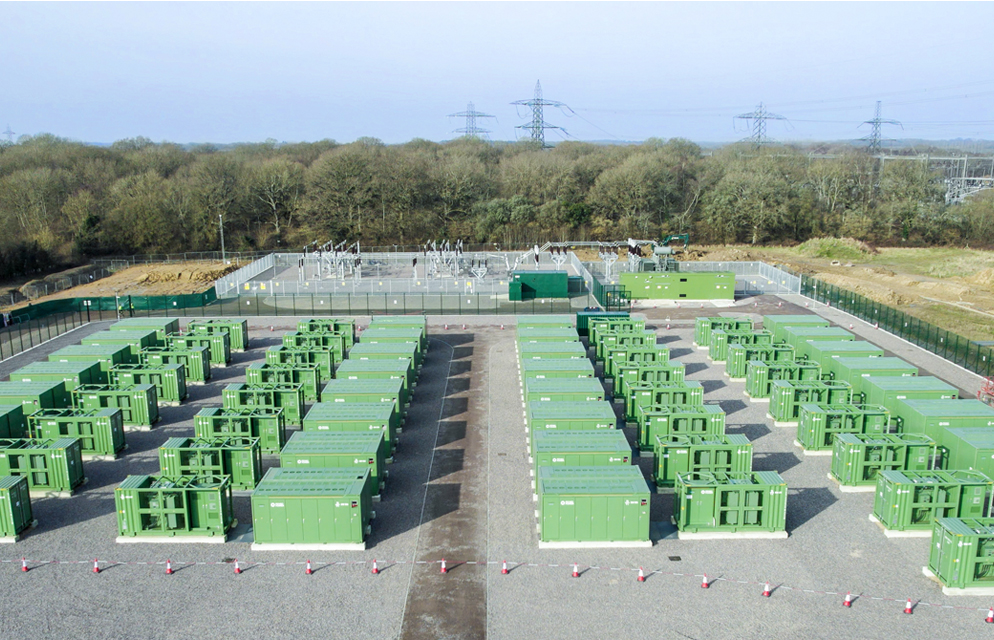
Long-term BESS offtake and PPA deals are clearly on the rise in Europe, but how are they evolving vis-à-vis structures, tenors and regional differences?
Market intelligence firm Pexapark’s lead battery energy storage system (BESS) analyst Apostolis Valassas discussed the topic with Energy-Storage.news Premium, following a series of reports the firm put out on it.
Because of the sharp revenue falls in 2023, it has become more common for BESS project owners to enter into long-term offtake contract structures with counterparties to transfer risk in the UK/GB market. Meanwhile, long-term deals have been necessary in some other European regions to get markets off the ground, with investors less likely to fund merchant projects.
“Germany is becoming a deal-making hotspot, now second after GB. We’ve seen deals totalling more than 700MWh in Germany in 2025 so far. We expect Germany to retain its current momentum,” Valassas says.
Try Premium for just $1
- Full premium access for the first month at only $1
- Converts to an annual rate after 30 days unless cancelled
- Cancel anytime during the trial period
Premium Benefits
- Expert industry analysis and interviews
- Digital access to PV Tech Power journal
- Exclusive event discounts
Or get the full Premium subscription right away
Or continue reading this article for free
“The Netherlands has the potential to become another deal-making hotspot, the trend there is a blend of contracted revenues with the asset ‘sliced’ into several tranches. I think this is a strategy to hedge against grid tariffs which are very high, but at the same time the spreads are very high, so it makes sense for the owner to retain some merchant exposure.”
Indeed, ‘slicing’ BESS into several tranches to different offtakers is the strategy opted for by basically all the big BESS owner-operators in the Netherlands. We’ve interviewed SemperPower and Giga Storage separately about this, while Lion Storage has gone a slightly different route.
Many countries are seeing their first ever BESS offtake deals announced recently too, including Bulgaria, Greece, Poland, to name a few, Valassas adds.
Where different offtake structures are popular is becoming clearer too, he says. “In GB we see floors being more popular than tolls, while in Germany tolls seem to be the go-to option to make larger scale assets bankable.”
And the length of the deals is increasing: “Across the board we are also seeing longer tenors. The volume weighted average tenor on the deals we’ve tracked is just over five years, but that will increase over time.”
We then ask Valassas how the emergence of government-backed long-term revenue-providing schemes like capacity markets (CM) and Italy’s MACSE auction may affect the value of BESS offtake deals. Valassas says that the logic of how this worked in solar may not apply to BESS.
“In the renewables space, government-backed subsidy schemes have tended to function in a competitive way against PPAs. I am not sure if we can apply the same thing to capacity markets or MACSE for BESS, since you can just stack them together.”
A big discussion in Europe right now is around hybrid power purchase agreements (PPAs), where one offtaker contracts with a project owner for both the renewables (usually solar) generation and BESS portion of a hybrid project. This deal structure is relatively common in North and South America, but very rare in Europe.
In fact, the first such deal in Spain was recently announced by Spanish energy firm Zelestra and Portuguese utility EDP. Valassas expect more to come.
“So far, the preference across co-located projects has been for a setup where each part has their own separate route-to-market: a PPA or subsidy for solar and separate optimisation for BESS. Hybrid PPAs where they share the same contract haven’t been that popular so far, but we expect this to change, especially where the business case for co-location is strong, like [in] Spain,” he says.
“Eventually demand for straight solar profiles won’t be there, so the straightforward solution will be co-location with a hybrid PPA to offer a flattened solar profile. There are contractual complexities and regulatory and grid hurdles to it, but we expect it to take off in the next few years.”
